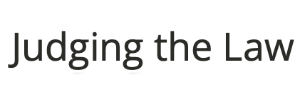On May 1, 2012, the New York Times reported the impending financial collapse of Dewey & LeBoeuf, a mega-law firm considered a “powerhouse” with over 1,300 lawyers in 26 offices across the world. The news was that the firm was crushing under the weight of debt – even despite posh offices, valuable Midtown Manhattan leases, and pay packages for some of its top partners “worth more than $5 million a year.” That story was reported almost two years ago.
But the “sequel” – just now making headlines in the news – makes the financial collapse of that firm seem mundane. Now, after apparently months of investigations into criminal misconduct by New York authorities, the latest juicy news in the New York Times is all about how four partners of that once-famous firm were criminally charged on March 6, 2014, with “manipulating the firm’s books to keep it afloat during the financial crisis. . .”
Lawyers have long been the butt of jokes among ordinary people. Q: “What do you call 500 lawyers at the bottom of a lake?” A: “A good start.” One I heard recently is: Q: “Why was the lawyer able to swim safely in the ocean among circling sharks?” A: “Professional courtesy.” People who are up to no good often think they will find a crooked lawyer to help them do their dirty work. And no doubt there are lawyers in every community that will do just that. Although lawyers swear under oath when they get licensed to practice law that they will uphold the laws of their state and the country, dishonesty comes in a variety of human forms. Big, small, male, female, young, old, and all manner of races and religions. If it lives and breathes and is human, there is potential for wrongdoing. This propensity for dishonesty is not limited to lawyers, of course. No profession, including clerics (sad to say), are beyond acknowledging their very own bad apples.
Back to the story. Who are these former partners of Dewey & LeBoeuf and what did they allegedly do? And what does their wrongdoing, if proven, say about the legal profession? Are there only just a few bad “lawyer” apples who allegedly resort to criminal misconduct in the name of saving their jobs and high salaries?
Charged with larceny and securities fraud, four of the firm’s former leaders, including its chairman, executive director, chief financial officer, and a client relations manager, are being accused of directing the firm’s employees to hide the firm’s “true financial condition from creditors, investors, auditors and even partners in the firm.” Regardless of whether they are ever convicted by a jury “of their peers,” who is so shocked by this story that they think there cannot possibly be truth to the charges? Unfortunately, probably no one.
What has our legal system come to if lawyers in a top rated, highly respected, and rich law firm can be charged with openly engaging in criminal misconduct in protection of their own professional interests and no one is shocked? How can ordinary people trust a legal system that gives rise to allegations of such bad behavior by the very professionals who are licensed to uphold the law and no one is surprised to read the story?
These four attorneys (and there are probably other Dewey lawyers and staff, who are nervously waiting to see if they are drawn into the center of this storm) are not, by any stretch of any imagination, alone among lawyers. Believe it or not, according to the news articles, much of the evidence being mounted against these “first four to be indicted” is in the form of emails that those presumably very smart lawyers wrote to each other in discussing the situation in their firm. For example, according to the N.Y. Times’ article, one email expressed their desire to find “another clueless auditor” to replace the one that had been fired by the firm. .
Given that looking for evidence of incriminating email threads is a standard strategy of trial lawyers, how could top notch lawyers foolishly create evidence trails against their own selves? Their fellow lawyers throughout the firm no doubt frequently counseled their clients to never put statements that could be construed as guilt in emails to colleagues. And, of course, there are no doubt witnesses within the firm itself to testify against these four lawyers. In fact, the March 6, 2014, New York Times article notes that Cyrus Vance, Jr., the Manhattan district attorney giving the news conference, said his office had “already secured guilty pleas from seven other people who once worked for Dewey.”
So, what do we know for sure? We know that even very smart and successful lawyers are capable of foolish, sometimes even criminal, behavior. The age-old question that fascinates many (including me) is this: What turns lawyers into criminals? And where is the line drawn between unethical and criminal?
It’s not hard to judge the law. It’s so often “out of order.”

